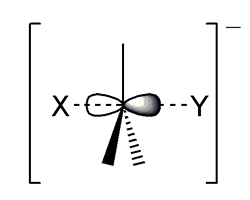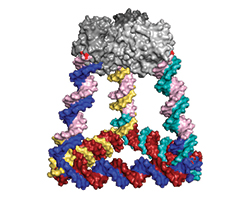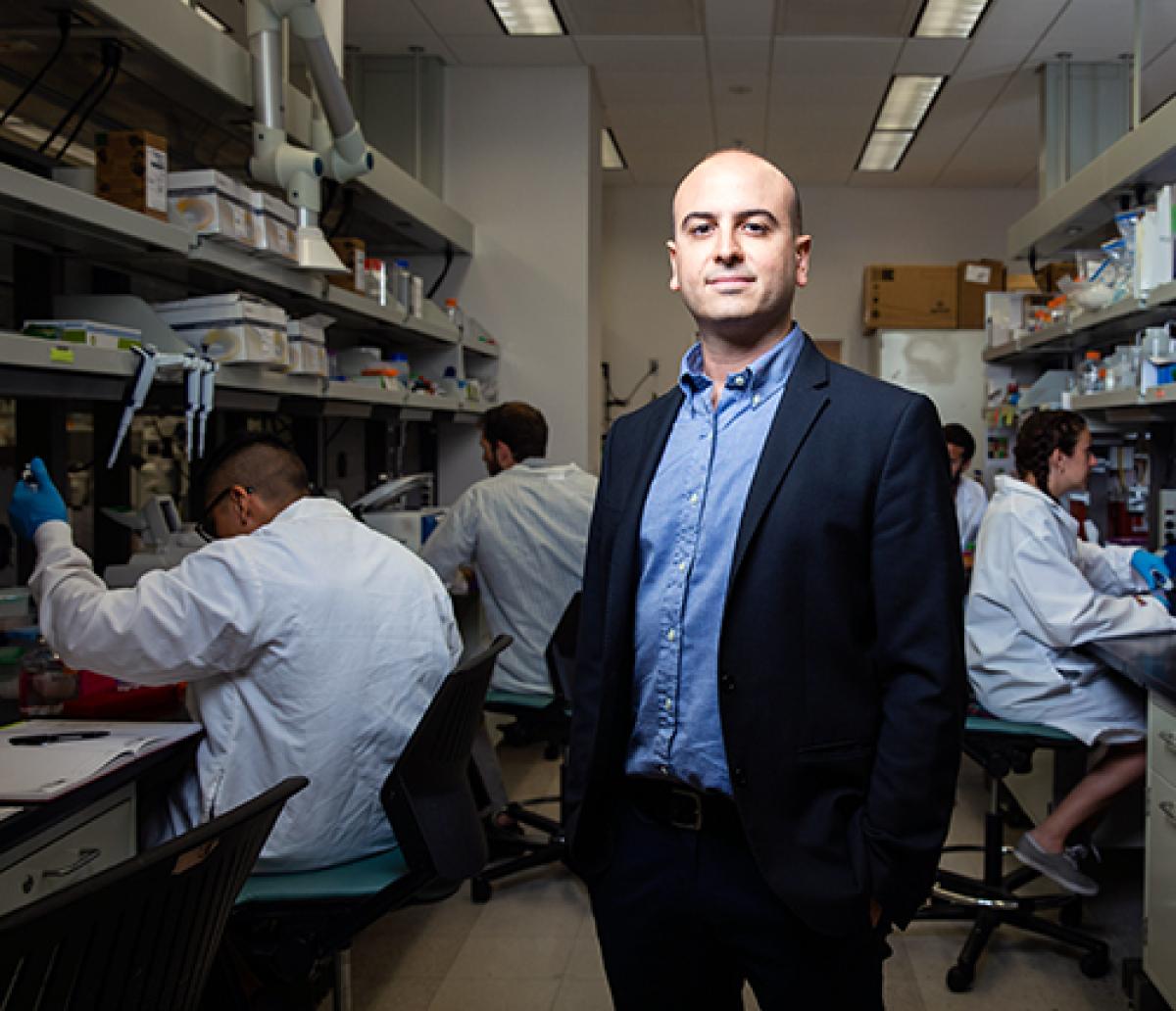Career Path for Nicholas Stephanopoulos
Fast Facts:
- Number of years in school: 22
- Favorite class / subject: Physical Organic Chemistry
- Hardest class / subject: Multivariable Calculus
- First Job: Working in a lab junior and senior year of high school
- Dream job as a kid: Professor
- One word you would use to describe your current job: Creative

Not everybody gets to end up doing their dream job, but Nick Stephanopoulos stuck with his dream and now gets to teach and learn for a living. His father was a professor of chemical engineering, so he spent his childhood seeing the ins and outs of a professor’s life. He decided this was a great way to make a career out of learning every day, while helping others to do the same.
Despite knowing he wanted to be a professor, it wasn’t until about junior year of high school that Stephanopoulos first took chemistry and biology classes and steered toward science as a career. He considered medical school, but after his first semester at Harvard, he decided to pursue a degree in chemistry. After college, he kept his focus on chemistry, but added in engineering as well, during graduate school. His next step was to focus his research on self-assembling biomaterials. He was very interested in how these could be used in regenerative medicine.

Through all the years of school and studying, Stephanopoulos’ favorite class was Physical Organic Chemistry. There, he learned about the reasons chemical reactions happen. The class explained the basics of how energy moves between things, the rules of these reactions, and how to predict them. “It was like seeing behind the veil, like this is why these things happen.” This understanding opened a doorway to a whole new world of information and possibilities. It was an important step for someone who wanted to learn for a living.
The most difficult class Stephanopoulos took was Multivariable Calculus, which focused on math proofs. Performing mathematical functions was easy for him, but proving why they work was much harder. The grade he received in that class was the lowest he ever got in college, and it was his first semester. According to him, “It made me think I might not be cut out for this.”
But luckily, he didn’t scare easily. Now Stephanopoulos is a professor and researcher at Arizona State University. There, his research continues to focus on combining DNA and proteins to make materials for use in biology, medicine, and energy. Research isn’t all he is responsible for while school is in session, but is close to half of his day-to-day responsibilities.

Roughly ¼ of his time is spent on teaching related things (teaching classes, planning lessons, grading, etc.). Up to ¼ more of his time can be taken up by meetings with collaborators, students, and other professors. Besides teaching college classes, Stephanopoulos also mentors graduate students doing research. “I pick which students to work with by seeing which ones I have the best chemistry with.” (Get it?)
Although small compared with his other responsibilities, some time must be spent each day coming up with new puns to unleash on his graduate students. “I like word play. Some people consider it fun, others consider it a PUNishment.”
Bonding with collaborators and students is an important part of his work, but most important may be keeping up with his curiosity. If you’re looking to become a scientist, you should never stop asking questions about how the world works. Learn as much as you can. “At the end of the day, you get to learn for a living, and that’s pretty cool.”
Building at a Nanoscale was created in collaboration with The Biodesign Institute at ASU. This section of Ask A Biologist was funded by NSF Grant Award number 1753387.
Additional images via Wikimedia Commons.
Read more about: Building at a Nanoscale
Bibliographic details:
- Article: Career Path: Nicholas Stephanopoulos
- Author(s): Dr. Biology
- Publisher: Arizona State University School of Life Sciences Ask A Biologist
- Site name: ASU - Ask A Biologist
- Date published: 21 Dec, 2018
- Date accessed:
- Link: https://askabiologist.asu.edu/career-path-nicholas-stephanopoulos
APA Style
Dr. Biology. (Fri, 12/21/2018 - 11:34). Career Path: Nicholas Stephanopoulos. ASU - Ask A Biologist. Retrieved from https://askabiologist.asu.edu/career-path-nicholas-stephanopoulos
Chicago Manual of Style
Dr. Biology. "Career Path: Nicholas Stephanopoulos". ASU - Ask A Biologist. 21 Dec 2018. https://askabiologist.asu.edu/career-path-nicholas-stephanopoulos
Dr. Biology. "Career Path: Nicholas Stephanopoulos". ASU - Ask A Biologist. 21 Dec 2018. ASU - Ask A Biologist, Web. https://askabiologist.asu.edu/career-path-nicholas-stephanopoulos
MLA 2017 Style

Be Part of
Ask A Biologist
By volunteering, or simply sending us feedback on the site. Scientists, teachers, writers, illustrators, and translators are all important to the program. If you are interested in helping with the website we have a Volunteers page to get the process started.

